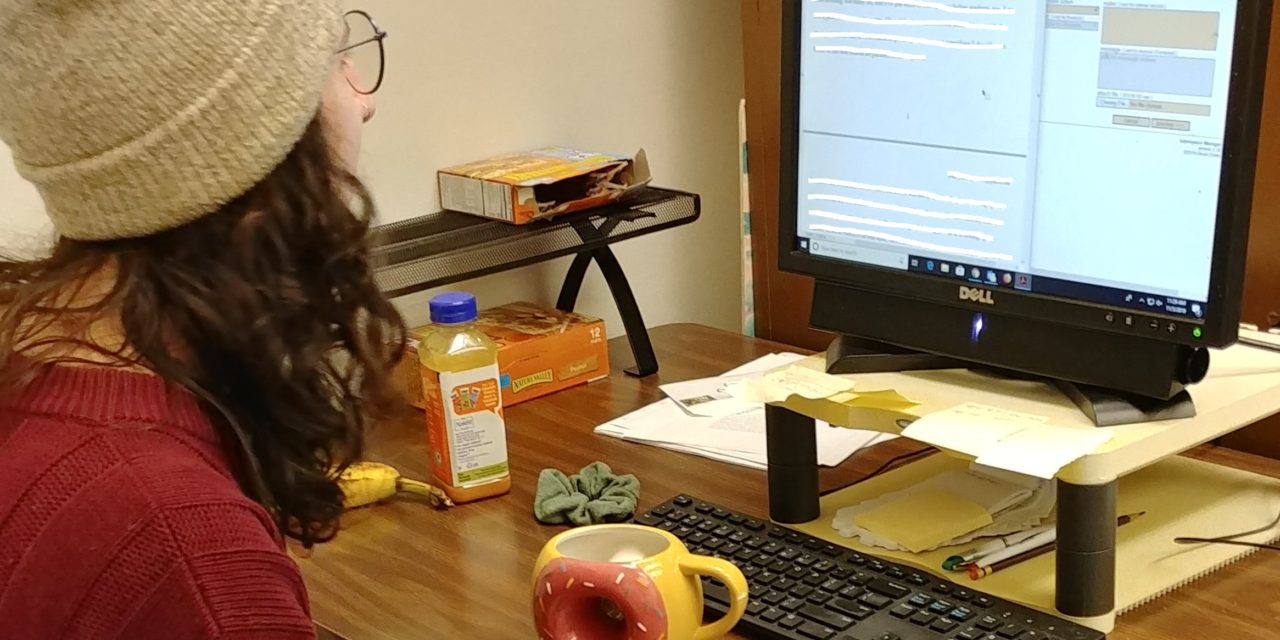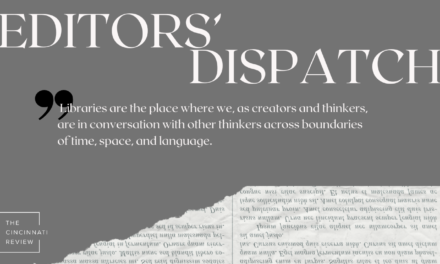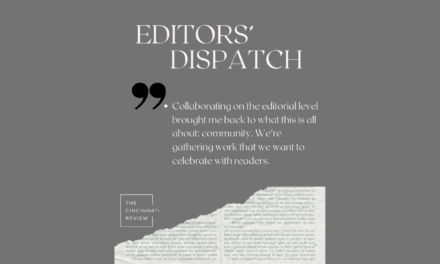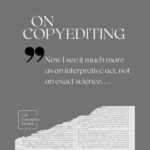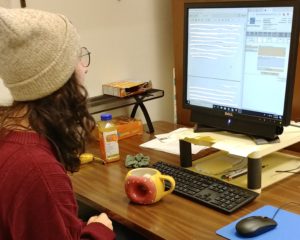
Managing Editor Lisa Ampleman: Every now and then, we like to recognize our editorial assistants, the volunteer readers who contribute their time and cognitive energies to our literary endeavor, without payment (unless you count a squeeze-ball penguin or hippo now and then, or a thank-you party in the spring, for those who live in town). We could not do what we do without them.
For Issue 16.2, we owe our special thanks to Senior Editorial Assistants Emily Rose Cole, Toni Judnitch, Darby Lyons, Joyce Miller, Chelsea Whitton, and Katherine Zlabek, and Editorial Assistants Jenny Burman, Christopher P. Collins, Cara Dees, Julia Velasco Espejo, Sakinah Hofler, Emma Faesi Hudelson, Ben Kleier, Claire Kortyna, Meg Matthias, Jason Namey, Eric Van Hoose, and Jessica Vozel.
We’d also like to share some of the kinds of comments that happen throughout the reading process, to continue to demystify what happens behind the scenes. As we’ve noted before, we’re a small staff (two permanent but half-time editors, three graduate-student editors during the academic year, four volunteer genre editors, and the aforementioned vital editorial assistants), and the vast majority of submissions are read by at least two people, which is why it sometimes takes us awhile to respond. (We received nearly 8,000 non-contest submissions last year, and we’ve already seen a record number of submissions in the month of September.)
Here are some of the sorts of assessments we write to explain our readings to each other:
Fiction:
“The last paragraph really hurts this piece. The ending doesn’t seem quite right at all. Other than that, though, this story has a lot going for it; the moment of the story is compelling, and the subject matter is timely, relevant, and inventively woven (family stuff leading into the political).”
“I’m still on the fence about this one. The relationships feel hollow, but the oddity of [character’s name]’s circumstances keeps me reading. It has a strong start, and the rest of it follows in a sort of grim narrative that feels like something unsettling will happen just beyond the next page.”
“This story starts off slowly but takes such an interesting turn midway through, I found myself rushing to get to the end. It might be a bit too heavy-handed, but there’s enough story and intrigue to propel a reader to the end.”
“Okay, I kind of love this. Weird, irreverent, brings women’s history to life in an awesome and, I thought, touching way. This story is [reader’s name] catnip.”

Literary Nonfiction:
“I think this is a strong piece that grapples pretty effectively with death and how language fails to address it. I did feel that it would benefit from being trimmed down in the middle.”
“Piece comes close to reaching something worthwhile and greater discussion about bigger family issues and insights, but doesn’t quite get there.”
“Well written and some touching moments, but topic is familiar, and the research dominates the narrative.”
“I really believe in this piece. It’s a good example of a braided essay that manages to balance research with memoir in interesting thematic ways. There’s plenty of tension in the memoir sections to keep us reading, and I think the overall message [ . . . ] is important.”
Poetry:
“Many of the poems are interesting tonally. However, they could be tightened quite a bit, in general. Lines and whole stanzas often seem extraneous to the poems, and at times the language feels overly formal, to the point of stiffness.”
“The two halves of this poem feel a little disconnected to me.”
“This takes some risks (that first line!), and at some points it borders on too-clever for me, but I find it delightful nonetheless. Such play! Definitely worth another look.”
“This is a strong submission. The poet combines narrative and lyric impulses in impactful ways, and there are moving emotional undercurrents in a lot of these pieces. In the case of this submission, I think all of the poems deserve an additional round of consideration (it’s hard to pick out just one or two).”

